
Caring for Seniors: Music and Health Benefits for Seniors
December 15th, 2020Caregiver Employment, Caregiver Service, Preparing for the Holiday, Retirement Plans for Seniors, Senior Living, Senior Services, Seniors, Uncategorized,
Caring for Seniors: Music and Health Benefits for Seniors
Music is beneficial for everyone. There’s always a song that makes each person that hears it feel something. But for seniors suffering from Alzheimer’s or dementia, it is especially beneficial. It allows them to access parts of their mind that might be unreachable otherwise. Here’s how music helps seniors when they need it the most.
What Music Therapy Does
Music therapy is part of what some experts refer to as entertainment. When people start to listen to music, it allows them to focus on it and feel more relaxed. This facilitates better physical and emotional processing so that everything from medications to feeling emotions is more effective. It’s used in care settings to help bring about change for therapeutic reasons, spiritual ones, or emotional ones.
This is why music therapy is used in a wide variety of care settings including long term care communities, rehab centers, hospice, and in home senior care. It helps people manage conditions like chronic pain and Alzheimer’s disease. In Finland, doctors studying its effects found that survivors of a stroke who listened to music every day improved their auditory memory, mood, verbal memory, and focus.
How Music Therapy Helps Seniors with Dementia and Alzheimer’s
Melody has a profound effect on people with Alzheimer’s and dementia and it is like a medicine for seniors with these conditions. Some studies have shown increased eye contact, communication, and happiness. It’s also shown that elderly people are less fatigued and that music helps regulate sleep, due to higher melatonin levels, if music is listened to regularly. Seniors are more likely to walk further when exercising and keep a better pace as well.
For those in the later stages of the disease, music therapy has shown to decrease stress and agitation while increasing relaxation and responses.
Caregiver Benefits from This Therapy
Caregivers also benefit from music therapy. Listening to songs with seniors who have Alzheimer’s or dementia helps lighten the mood. Plus it creates a connection with the client or loved one and helps the two communicate without needing to use words. Caregivers can use music to make the daily routine they go through with clients or loved ones easier by creating a connection. Most importantly, music helps improve the bond between caregiver and elder that can fray due to stress.
If you or someone you know need help caring for an elder with Alzheimer’s or dementia, contact Polish Care Services. Our team of care experts will be happy to help match you with a caregiver who meets your needs.
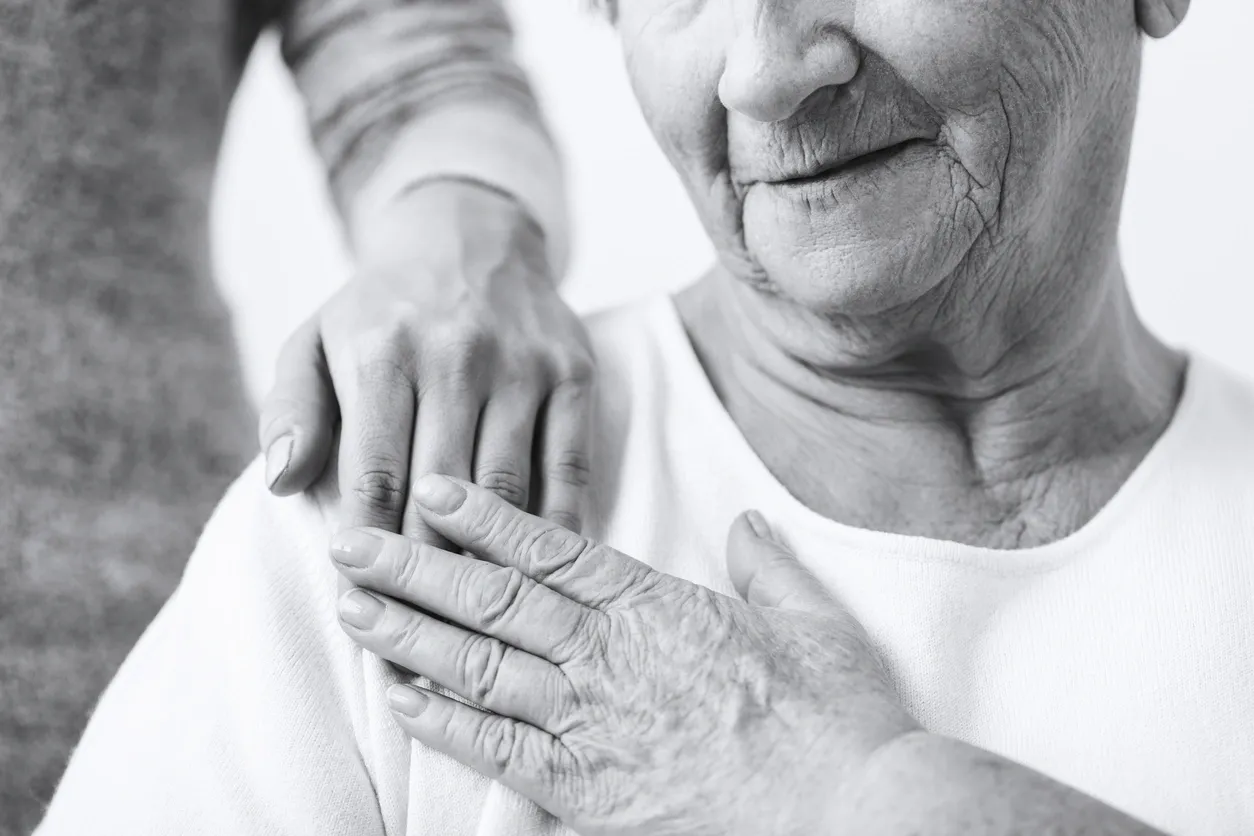
How Companion Caregivers Engage Seniors and Reduce Isolation
November 13th, 2020aging in place, Alzheimer's Care, Caregiver Employment, Caregiver job, Caregiver Service, Companion Caregiver, Dementia Care, Elderly Care, Fall Activities for Seniors, Hire CNA, Hire HHA, Hire PCA, Home Healthcare, House Cleaning, In Home Care, Janitorial Service, Long Term Care, Office Cleaning, Outdoor Activities for Seniors, Polish Care Services, Retirement Plans for Seniors, Senior Care Services, Spring Activities, Summer Activities for Seniors, Uncategorized,
Caring for Seniors: How Companion Caregivers Engage Seniors and Reduce Isolation
Seniors are prone to isolation. But the ongoing pandemic has increased the possibility of seniors becoming isolated even more. One way to reduce isolation is to connect seniors with a companion. Here is an overview of how seniors can benefit from companionship and increased engagement from companion caregivers.
What Companion Caregivers Do
The main thing that companion caregivers do for seniors is to socialize with them. They provide in home senior care on set days of the week, giving their clients something to look forward to during the week. Companion caregivers can assist seniors with household tasks like paying bills, caring for pets, and preparing meals, assist with transportation, and provide medication reminders. But it is the social aspect of their job that cannot be understated.
Companion caregivers provide a connection to the outside world, and for seniors who have difficulty leaving their house due to physical limitations or conditions like Alzheimer’s and dementia, this is important.
Making Connections and Engaging
Companion caregivers help connect with seniors by engaging them in activities like taking walks together, reading together, playing games, and simply having conversations about life and family. Studies conducted in recent years have shown that taking the time to do these things matters. Care workers at nursing homes in the United Kingdom were given care champion training to help them engage residents with dementia in conversation for at least one hour a week. The care workers were given prompts and cues to help elicit conversation.
Over time, researchers found that the seniors who participated in the study had a better quality of life and were less agitated compared to using medication to reduce it. Other studies have found that creating individualized care plans and teaching seniors with Alzheimer’s and dementia how to do certain tasks saw their activities of daily living go up.
Benefits of Staying Active
Engaging with seniors by using conversations and activities has shown that seniors live longer and improve memory and executive function. Companion caregivers can also provide long term care and emotional support that connecting with family and friends would normally bring and make them feel joy.
If you’re searching for a companion caregiver for your elderly loved one, reach out to Polish Care Services. We’ll match a companion caregiver to a senior that meets their needs. Reach out to us today.
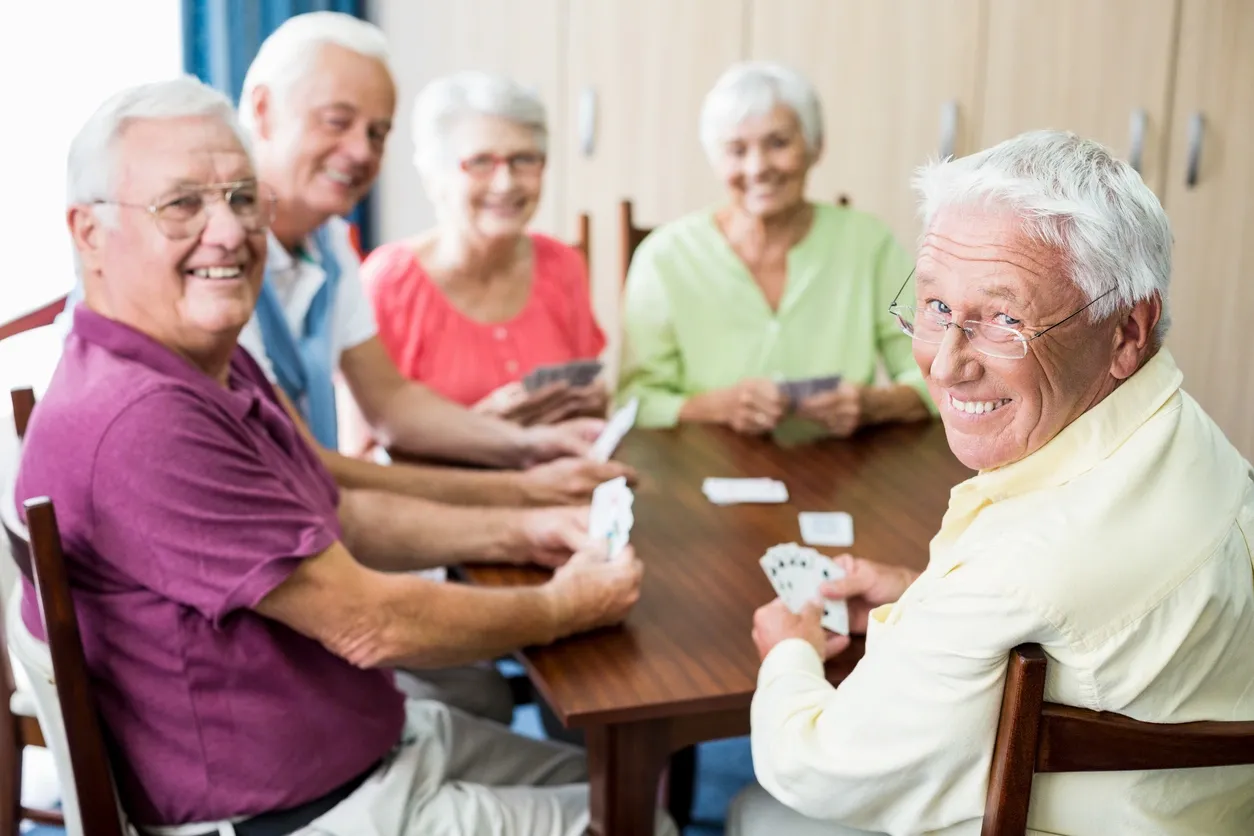
Caring for Seniors: Card and Puzzle Games Benefits for Seniors
October 27th, 2020aging in place, Caregiver Employment, Caregiver Service, Elderly Care, In Home Care, in home care assistance, Long Term Care, Meditation, Polish Care Services, Senior Care Services,
Exercising your mind is just as important as exercising your body. This is especially true as people get older. One way to keep the mind active while having fun is to play board, card and puzzle games. Here’s how such games help the mind stay sharp and entertained simultaneously in long term care.
Come Together
Card and puzzle games are activities that bring people together. Being able to play a game with a friend or family member brings a sense of purpose to the gathering and can help seniors feel less isolated and alone. They’re able to connect to other people, share stories with one another and build on relationships. Such games also have the impact of reducing anxieties about social situations.
Improving Brain Function
Studies show that seniors who participate in activities like playing cards and doing puzzles regularly can improve their brain function because it engages memory, reasoning, and mental speed.
Games to Play
Call to Mind is a card and board game that focuses on communication. It was developed for people in the early stages of dementia. Its purpose is to help seniors remember things from their past and strengthen those memories. It’s also one way to get to know other people.
Jigsaw puzzles utilize multiple parts of the brain which is why they are beneficial for people with Alzheimer’s and dementia. They require creativity and logic to solve and help to exercise short-term memory. Simple pictures with distinct shapes are recommended. Puzzles can even be made of pictures from a person’s favorite memories.
PicLink is a type of puzzle and card game. It uses tiles with photos on them to help encourage conversation and memory building for people who have dementia. It’s a simple game so it may be too simple for some seniors. But it’s one of the very few options out there for people who can’t do complex tasks.
Shake Loose a Memory is a type of card game. Players keep cards if they have a memory listed on the card like gardening. Then it asks a specific question about that subject. It encourages players to share memories and stories they haven’t thought about for a while. The game encourages seniors with Alzheimer’s or dementia to communicate more.
If you’re searching for in home senior care for a loved one with Alzheimer’s or dementia, reach out to Polish Care Services. Our dedicated care team will match you with a caregiver to meet your needs.
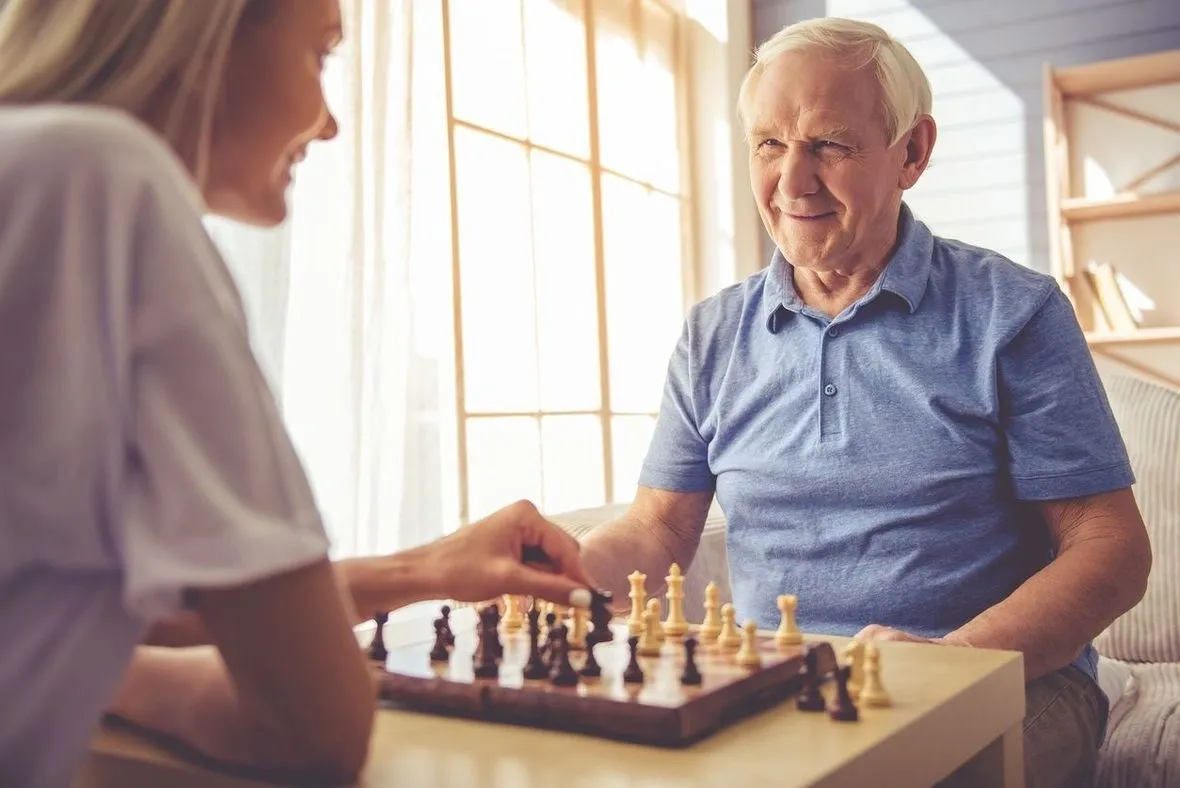
Caring for Seniors: Providing Care for Seniors During COVID-19
August 25th, 2020Caregiver Employment, Caregiver Service, Companion Caregiver, Companion Senior Care, Homecare, House Cleaning, In Home Care, in home care assistance, Long Term Care, Office Cleaning,
COVID-19 is not going away any time soon. There are measures that caregivers can and should
take to protect themselves and the people they care for. This article discusses how these measures
protect everyone involved and keeps those in need of care from contracting COVID-19.
Understanding COVID-19 Spread
COVID-19 spreads between people in proximity to one another, less than six-feet apart via
respiratory droplets. When one person coughs, sneezes, or talks to another, the droplets produced
from that will land in the other person’s mouth and nose. The virus can spread from someone who
is infected but not showing symptoms.
How to Stay Safe
Hand washing is one of the main ways to help keep caregivers and those who need care safe. It
should be done frequently, especially after:
– Using the bathroom.
– Caring for someone who is sick.
– Leaving a public place.
– Blowing your nose.
– Changing a diaper.
– Touching your face, eyes, or mouth.
Use hand sanitizer with at least 60% alcohol if soap and water aren’t available.
Maintaining distance from others is another way to stay safe. Stay away from people who are sick
in your household. If you provide long term care at a facility or at a person’s home, limit
unnecessary close contact as much as possible.
Wear a mask when you are outside the house. A mask protects others from getting sick. This
includes while you are working with your care client. Gloves are also recommended when working
closely with someone else.
Keep disposable supplies like masks, gloves, hand sanitizer and other things specific to your care
client in a container at their home or at your facility for your use only.
Clean Frequently
Clean and disinfect surfaces frequently while you are working. This is also a good practice to
implement at home.
Stay Healthy
Be aware of the basic symptoms of COVID-19. These include fever, cough, and shortness of
breath. If you think you have any of these, take your temperature. Don’t take it right after
exercising or taking medication. Consider keeping a symptom diary to track any time you are
feeling unwell during the pandemic.
If you experience any of these symptoms or others, let your client know and plan for alternative
care, and get a COVID-19 test if symptoms are not going away.
Caregivers at Polish Care Services are committed to keeping clients safe during COVID-19.
Moreover, one caregiver to one patient in an in home care setting helps to minimize the risk of spread.
Contact us at 860-255-8278 to learn more about how we provide safe in home senior care.
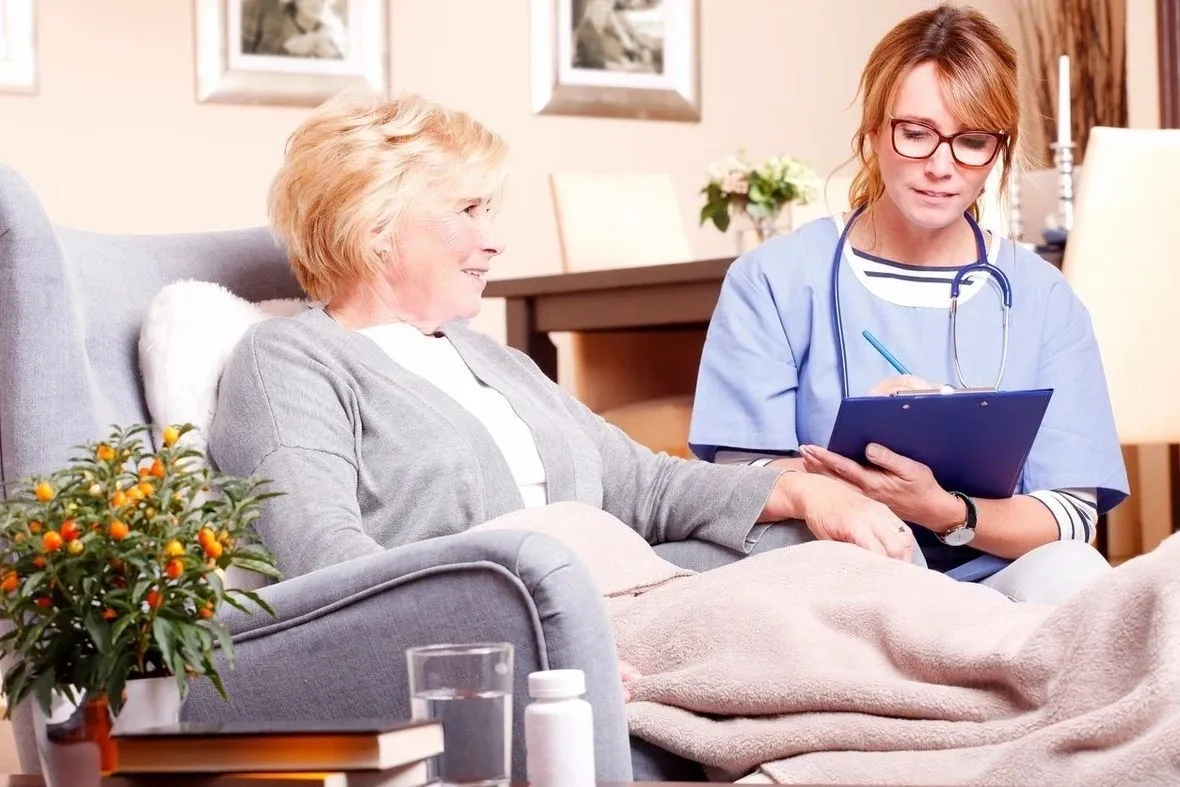
Caring for Seniors: Managing Finances
July 28th, 2020Caregiver Employment, Caregiver job, Caregiver Service, Companion Caregiver, Companion Senior Care, Disability Care, Hire CNA, In Home Care, in home care assistance, Long Term Care, Outdoor Activities for Seniors, Polish Care Services, Senior Living, Senior Services, Seniors, Spring Activities,
Caring for Seniors: Managing Finances
Care is an expensive part of getting older. Everyone will need some type of long term care in their senior years. This knowledge does not make planning for these financial eventualities any easier. Long-term care insurance is one option that helps with the cost of care as people age. This article provides an overview of what this insurance option is and what it covers.
What is Long-Term Care Insurance?
Long-term care insurance covers services that help seniors as they get older. It helps with the cost of having assistance for activities of daily living or ADLs such as bathing, dressing, and transferring. Traditional health insurance doesn’t cover such costs. This insurance can cover:
– In-Home Care
– Home Health Aides
– Care at an Assisted Living Facility
– Care in a Nursing Home
Long-term care insurance is an option that some seniors choose because they may not want to use a loan, property sale, or to depend on family to help out if care is needed.
The Benefits of Long-Term Care Insurance
Long-term care insurance can help pay for in-home senior care and seniors can stay at home longer. The insurance will typically begin covering services when assistance is needed with two or more ADLs. Because it covers in-home care, a senior can have caregivers come into their home and help them with ADLs along with things like cooking and cleaning.
The costs of moving to assisted living or to a nursing home has a monthly rate starting at $6,000 on average excluding the cost of medical care. If you are a senior in need of care, the cost is typically less expensive to stay at home with care.
What to Keep in Mind About Long-Term Care Insurance
The best time to buy long-term care insurance is between the ages of 50 and 65. Waiting longer may mean an increase in cost, especially for those with an existing condition. Insurance premiums are not cheap but for those who can’t afford care out-of-pocket and are not considered low-income, long-term care insurance is something to think carefully about.
If you’re in need of in-home senior care, reach out to the staff of Polish Care Services 860-255-8278 or [email protected]. We can help walk you and your family through the options for in-home senior care.
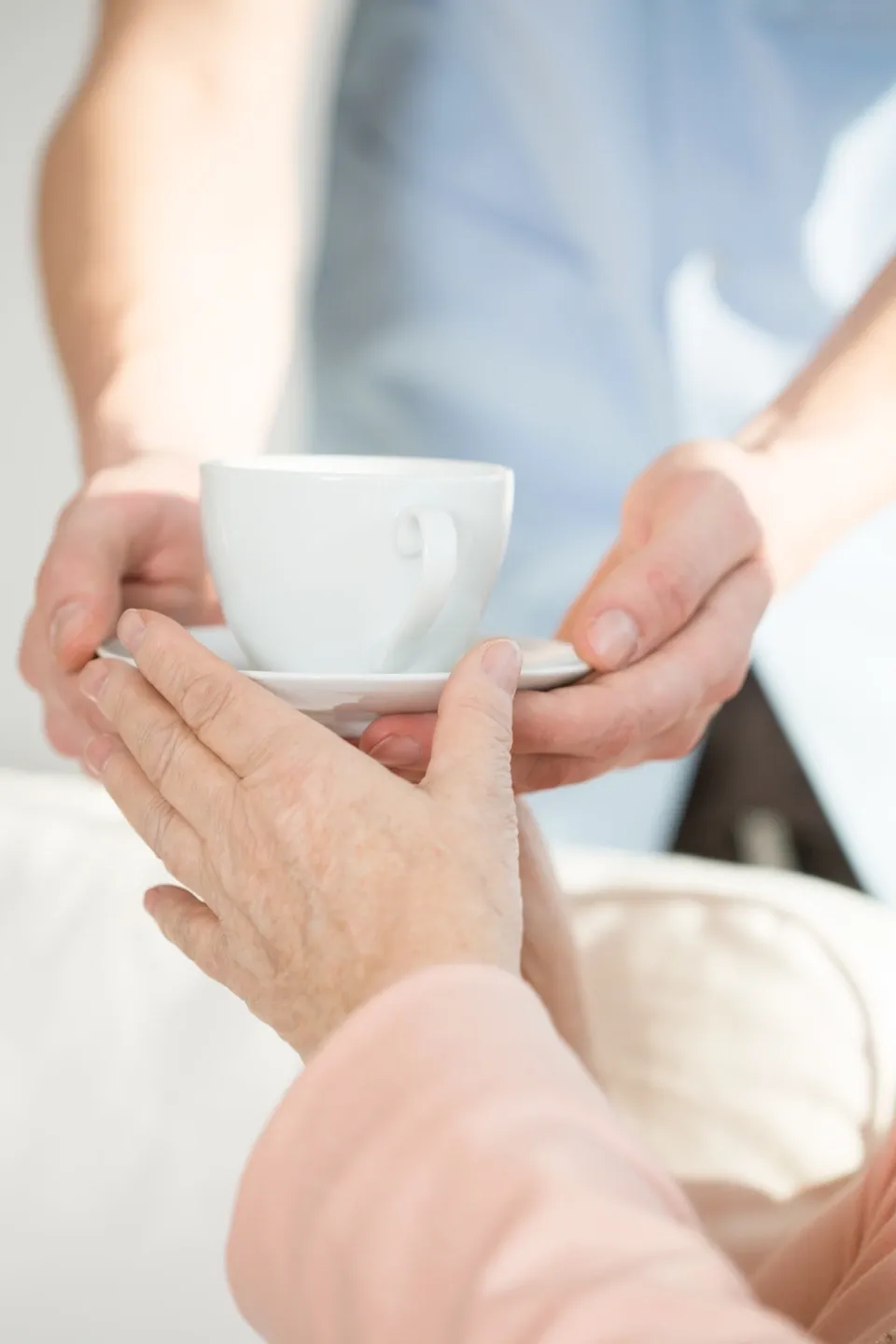
Caring for Seniors: The Caregiver Option
July 7th, 2020Caregiver Employment, Caregiver Service, Home Care, Home Healthcare, Homecare, House Cleaning, In Home Care, in home care assistance, Long Term Care, Polish Care Services, Senior Care Services,
If your elderly loved one is struggling with daily activities like shopping, bathing, or dressing independently, and wants to stay in their home, consider hiring a caregiver. This article discusses what a caregiver is, what their duties are, and tips for hiring one for your loved one.
What is a Caregiver?
A caregiver is someone who provides in-home care for someone who needs extra help doing daily tasks on an ongoing basis. They can also be employed when a loved one is recovering from a temporary illness or surgery.
What a Caregiver Does and Limits to Consider
A caregiver can help with things like driving to appointments, shopping, dressing, and bathing and serve as companions. Caregivers can also help seniors with any prescribed exercises given by therapists, attend appointments, and report any health concerns to family members or doctors that they observe. The duties of the caregiver will ultimately depend on the care needs of a loved one. But there are limits.
When hiring a caregiver, consider what the care needs of your loved one are realistically speaking. Senior care needs can change over time. So be prepared to consider other care options such as increasing hours, round-the-clock care, or moving to a facility if that is what is necessary and appropriate.
Things to Consider When Hiring a Caregiver
Considering your loved one’s care needs is important but it’s not the only thing you should factor in.
Finances- Insurance does not cover the cost of caregivers the majority of the time. Can your loved one or family afford to pay for caregivers now and increased needs in the future?
Family Agreement- Make sure that your loved one and family members involved with them and their care agree with the decision. If your loved one or other family members have different ideas about who the caregiver should be, it can cause significant conflict.
The Right Fit- Hiring a caregiver independently or going with the first agency you call may not be the right fit for your loved one. Talk with your loved one and family, ask questions of prospective agencies and do your research before you hire anyone.
If you’re not sure where to start in your caregiver search, contact Polish Care Services. Our staff will be happy to discuss our services with you!

Using Ultraviolet UV Rays for Coronavirus Covid-19 Sanitizing
April 19th, 2020aging in place, Caregiver Employment, Caregiver Service, Companion Caregiver, Dementia Care, Elderly Care, Home Care, Home Healthcare, Homecare, House Cleaning, In Home Care, Long Term Care, Polish Care Services, Senior Care Services,
Because of the Coronavirus Covid-19 pandemic, Polish Care Services team has been researching global solutions to eliminate viruses and bacteria, to better understand how to improve on care quality for its seniors and disabled clients, also to improve its residential and commercial cleaning operations.
Our primary source has always been the CDC and its guidelines. However we believe in gathering and analyzing enough scientific data from credible sources to make informed decisions, for more effective outcomes.
During our research for a no mess solution, we were enlightened about the benefits of Ultraviolet rays for sterilization purposes.
Coronavirus Covid-19 Survival and Transmission
According to the Annual Reviews Covid-19 type viruses transmission is seasonal and cyclical and will primarily occur during December through April. Transmission was found to be most efficient under 23°C/ 73.4°F/ 30% relative humidity RH conditions, and least efficient at 23°C/73.4°F/ 50% RH and 5°C /73.4° F/ 70% RH.
What is Ultra Violet light
Ultraviolet light is a type of electromagnetic radiation that is used for for summer tans, sunburns also makes black-light posters glow. However, too much exposure to UV radiation is damaging to living tissue.
UV is generally divided into three sub-bands:
● UVA, or near UV (315–400 nm)
● UVB, or middle UV (280–315 nm)
● UVC, or far UV (180–280 nm)
The greater the intensity and exposure, the more dangerous it is for organisms. UV-C is considered the most safe when used with precautions.
How does it Work
According to the National Institutes of Health NIH Ultraviolet short-wave radiation destroys DNA in living microorganisms.
The effectiveness of UVC’s is directly related to its intensity and exposure time.
Although UV-C LEDs are relatively new to the commercial market, it is becoming more popular in global communities.
UV-C LEDs targets a specific wavelength needed for disinfection. This is important considering that pathogens vary in their sensitivity to specific UV wavelengths. The benefits of LEDs are unlimited daily cycle, instant on/off and mercury free. Most handheld ultraviolet LED sanitizer wands has a shield that minimize light and radiation contact with user.
What are the Dangers
Dangers of too much exposure to Ultraviolet (UV) radiation is a known cause of skin cancer, skin aging, eye damage, and may affect the immune system.
Further research is needed for the consistent use of Ultraviolet sterilization, although most studies shows that the use of these devices with the proper precautions, can be effective and relatively safe. Virus in hard to reach areas such as cracks and crevices may not have the adequate exposure to be eradicated, and can still survive.
It is recommended to use sanitizing solutions with ultraviolet rays to be more effective.
Best Solutions
Best solutions are still social distancing, hand washing, disinfecting surfaces, and wearing mask when necessary. If possible, seniors and those with preexisting conditions should avoid areas with large groups or gatherings, as the risk of contracting the virus is more elevated in these settings.
In home care with a personal caregiver may be the best viable option. Without a vaccine, and because of the cyclical nature of the Covid-19 virus, this indicates occurrences will be seasonal and cyclical December – April.
Polish Care Services provides caregivers for seniors and disabled, we also provide cleaners for homes, and janitors for offices and business.
Please visit us at polishcareservices.com or phone 860-255-8278 or email [email protected] so we can better understand your needs.
